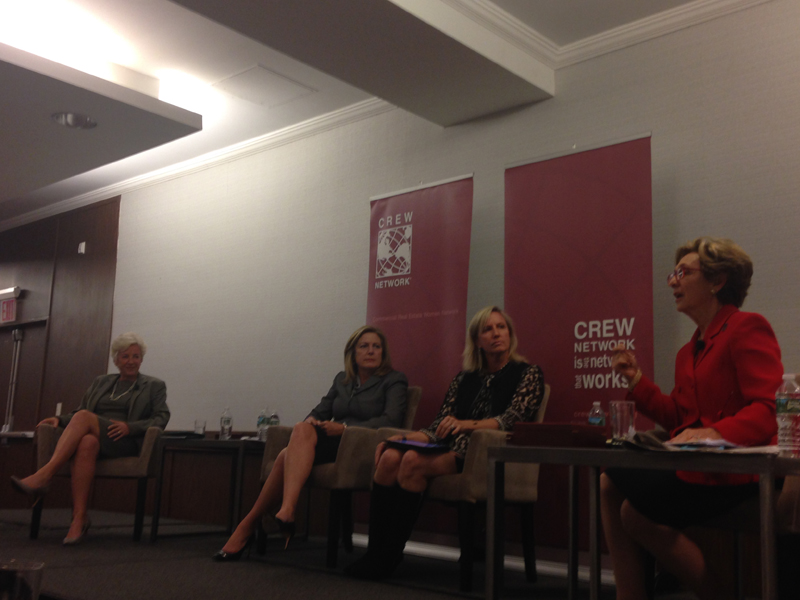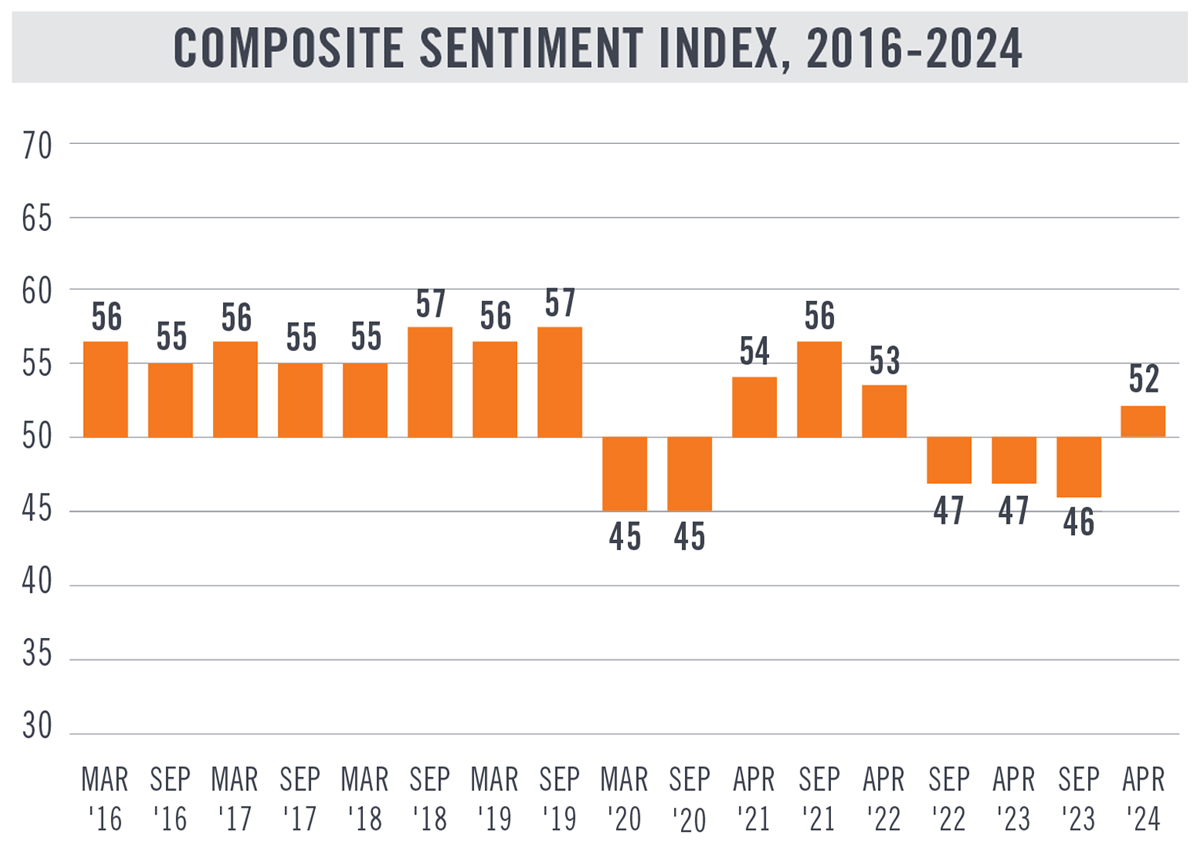CREW Network Special Report: Leadership Lessons
Mary Anne Tighe, Ric Campo, Jodie McLean and other industry leaders list their keys to success.
By Suzann D. Silverman

Distinguished Leaders Roundtable: Annette Verschuren, Julie Smith, Jodie McLean, Merle Gross-Ginsburg
This year’s CREW Network Convention & Marketplace offered some critical leadership lessons to the audience of 1,500 that converged on Midtown Manhattan for three days last week. While the vast majority of attendees were female real estate investors, brokers, property managers, engineers, attorneys and others, the words of wisdom are applicable to anyone climbing the management ladder. With many running along common themes, it seems just a few weighty lessons can make a big difference in successfully managing an organization.
Thus, whether you’re in a crisis situation or just striving to close a deal, you would do well to heed the following:
- Don’t Be Afraid to Take Risks. Risk-taking is essential for personal growth, CBRE New York Tri-Region CEO Mary Ann Tighe advised during Thursday’s luncheon keynote, before she sat down with Camden Property Trust Chairman & CEO Ric Campo and Forest City Ratner Cos. President & CEO MaryAnne Gilmartin, to talk about that and other management lessons they have learned as they have advanced in their careers. Rejection of risk aversion begets opportunity, she added.
The Distinguished Leaders Roundtable that opened the event on Wednesday night was also replete with such suggestions: “I love watching people take risks and succeed,” observed NRStor Inc. Chair & CEO Annette Verschuren. She began her career in the coal mining business, where, she related, absenteeism was high on the days she was in charge because it was considered bad luck to be in the mine under a woman manager. Verschuren went on to serve as president & co-owner of Michaels of Canada, then rose to president of The Home Depot Canada and Asia before founding energy storage company NRStor. Fellow panelist Jodie McLean, CEO of shopping center owner EDENS, affirmed her advice, taking it one step further: “It’s OK to take risk; therefore, it is OK to fail.”
- It’s OK to Make Mistakes—Even to Fail. It can be tough to move on after failure, but responding to the situation and then focusing on the next steps in the strategy is critical to the larger success of the business. “You can’t be afraid to make the next decision … even if the previous one was bad,” emphasized Adm. William McRaven, USN (ret.) during the luncheon keynote that closed the conference. A retired four-star admiral in the U.S. Navy who oversaw Operation Neptune Spear, the special ops raid that took down Osama bin Laden, and who is now system chancellor for the University of Texas, McRaven further noted that addressing and surviving a failure will help you come back stronger.
- Don’t Pursue Perfection: Abandon the quest for perfection, Tighe advised, or you risk transforming setbacks into personal drama, which in turn leads to aversion to risk. Learn from your mistakes and move on. “Embrace your imperfection,” McLean noted. And Vershuren revealed that once she reaches 60 to 70 percent of her goal, she will proceed with her plan.
- Be Open: Embracing new ideas and perspectives is critical to full consideration. “You just have to be so open—you never know what’s going to happen,” noted Julie Smith, chief administrative officer for The Bozzuto Group, during the Distinguished Leaders Roundtable. Adm. McRaven employs the Socratic method in making big decisions, encouraging intellectual discussion among his team to ensure all aspects have been considered. “Innovation occurs when you have a clash of different ideas,” affirmed Sally Krawcheck, CEO & co-founder of Ellevest and former CEO of Merrill Lynch Wealth Management, during Friday morning’s opening session. She emphasized the value of diversity among the leadership team, which introduces diversity of ideas. Gender diversity, she said, has been proven to lead to higher returns on equity, lower risk, greater client services, more long-term functions, greater employee engagement and innovation. Why? When a team is homogeneous, the members tend to overtrust each other, she said, leading them to question each other less.
-
Keep Learning. Being open allows you to keep learning and growing. “The minute you stop asking and stop being inquisitive, you lose,” Verschuren observed. In fact, she has found past work in difficult situations and companies to be valuable learning experiences.
- “When you’re in the middle of a crisis, you have got to communicate,” McRaven emphasized.
- Take Action. Take action when you can, Verschuren said. Agreed fellow panelist Merle Gross-Ginsburg, who founded the Association of Real Estate Women, which recently merged with CREW Network’s New York chapter, and rose through the ranks of the Edward S. Gordon Co., “If I see something that needs to be done and there’s no one to do it, I do it myself.” Indeed, while leasing up the newly built Chrysler Building, she read every single bill as it came in to ensure the construction job was uncorrupted. A related suggestion from McRaven: In a crisis, the leader should be on the front lines.
- Get Involved and Develop a Public Persona. Tighe listed both her involvement with the Real Estate Board of New York, which gained her contacts and a stake in the local industry, and her interest in talking to the press, which helped her develop credibility and a strong reputation.
- Maintain Your Cultural Integrity. “A great culture always beats strategy,” observed Campo, whose company has received high marks over the years for its workplace culture. Most recently, Fortune magazine and Great Places to Work placed it 13th among its 100 Best Workplaces for Women.









You must be logged in to post a comment.